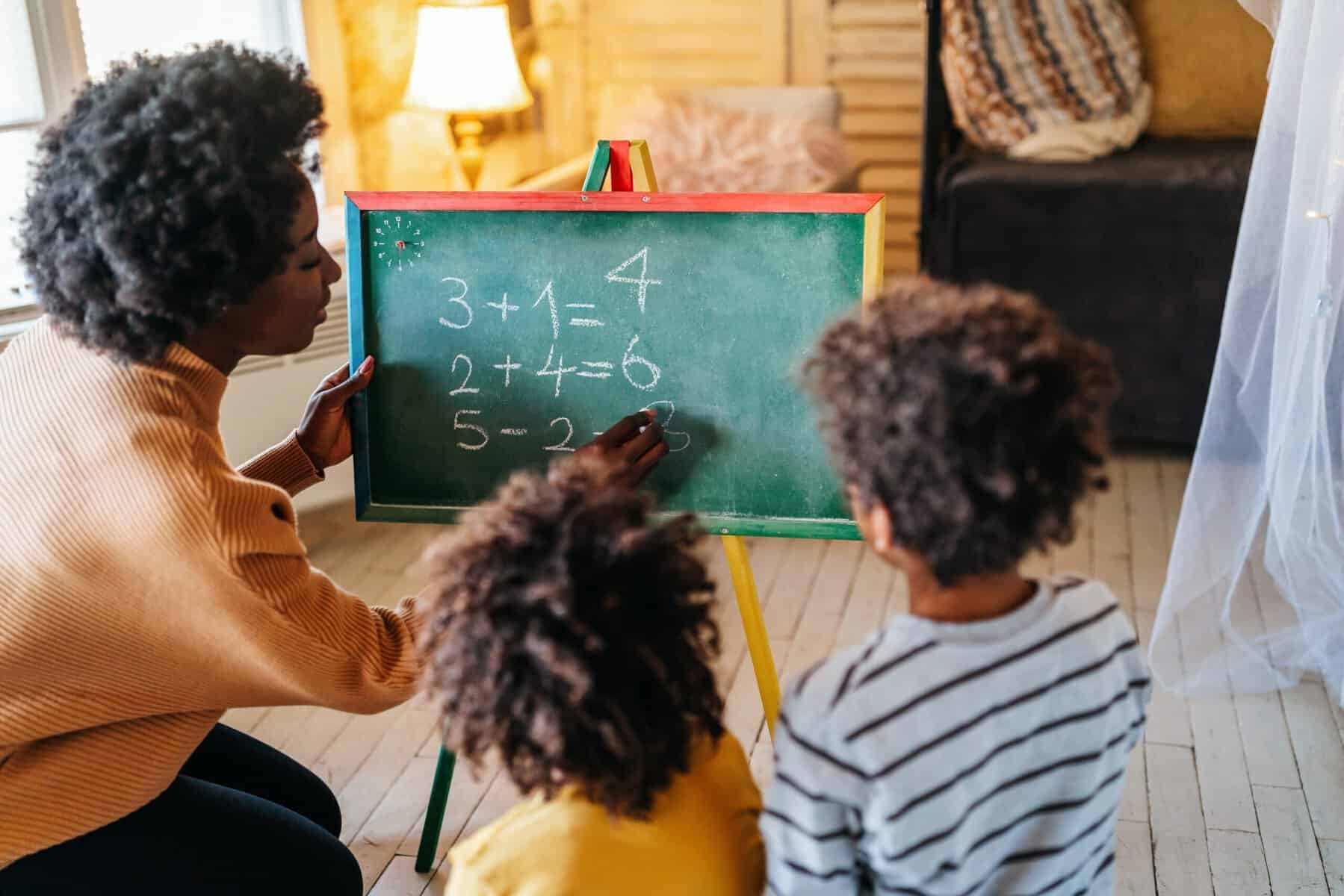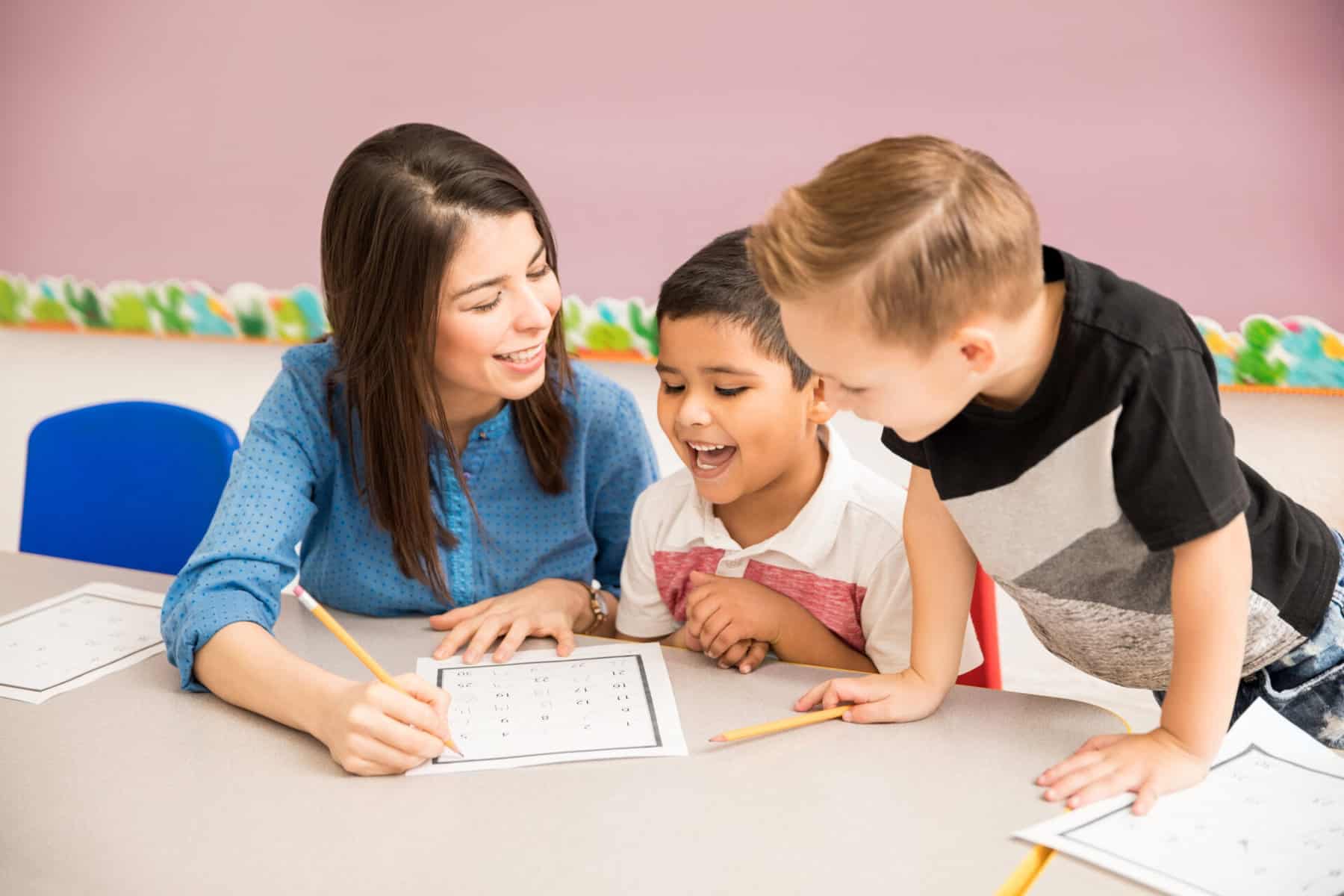Kindergarten Math Curriculum
In kindergarten, students learn how to count, sort, categorize, measure, and identify patterns— all skills that adults use every day! Whether you’re counting money, sorting laundry, or measuring ingredients, you can thank your kindergarten math teacher for showing you how.
Kindergarten math is an important first step in helping students build a strong foundation in numbers, counting, and problem-solving. At this stage, children explore concepts like recognizing and comparing numbers, adding and subtracting within ten, and discovering patterns and shapes. Mastering these skills early on sets them up for success for more advanced math concepts and problem-solving.
Plus, Miacademy makes learning kindergarten math online easy! With interactive lessons, quizzes, and hands-on activities, kids build number sense and practice other essential math skills while having a blast!
Is my student ready for kindergarten math lessons?
Many educators wonder if their student is ready to start learning kindergarten math concepts, or if there are certain skills they need to master first.
In kindergarten math, students learn to count, identify shapes, sort items, recognize patterns, and much more, so don’t worry if your student doesn’t know their shapes or numbers just yet – that’s what a kindergarten math curriculum covers! Instead, look for key developmental signs to gauge your student’s math readiness.
Your student is likely ready for kinder math if they can:
Sample Lesson
Looking for more? Find us on Youtube @TheMiacademyLearningChannel!
Free Math Activities for Kindergarten – PDF Download
Each video lesson has an accompanying PDF of additional math activities, to extend learning beyond the screen with a hands-on approach!
Or, check out these other great resources to help students practice what they learn:
What do kindergarteners learn in math?
By the end of the year, students will master kindergarten math skills such as:
- Recognize, count, and write numbers up to 100.
- Perform simple addition and subtraction within 10.
- Compare numbers to find which is greater, less, or equal.
- Compare objects based on their length, height, and weight.
- Identify and create simple patterns (ABAB, AABB).
- Sort and categorize objects by attributes like size, color, or shape.
- Show data sets with simple methods like tally charts.
Scope and Sequence
Math Level A (Revised 2024)
Our kindergarten homeschool curriculum emphasizes hands-on learning to help young students develop a strong number sense by exploring the world around them. Through understanding concepts like “how many in all” and “how many more or less” children gain the foundational skills to use numbers effectively in problem-solving situations. This approach fosters critical thinking, strategic use of tools, and confidence, preparing students for future mathematical challenges.
Miacademy’s Online Homeschool Math Curriculum
At Miacademy, we believe math is more than just numbers—it’s about problem-solving, critical thinking, and discovering patterns in the world around us. Our K-8 math courses are designed with inquiry-based learning, guiding students to explore concepts, ask questions, and develop a deep understanding of mathematics. We use a spiral approach, ensuring key skills are reinforced over time while introducing new challenges at the right pace. Crafted by experienced educators, our lessons foster confidence and curiosity, helping students build a strong foundation that supports success in higher-level math and beyond.
In addition, one of the best things about our online homeschool math program is its flexibility. You can customize lesson plans and assignments to fit your child’s unique learning needs. That means they can skip what they already know and dive right into new challenges!
Miacademy has so much to offer— our family of curricula covers everything from kindergarten math to precalculus, to grow and adapt to your child’s educational needs.
Whether you homeschool full time or are looking to supplement a public school education, we’re here to support you! Wondering if Miacademy can be a good fit for your student? Start a chat with one of our friendly customer service agents below! They’ll be happy to help you with any questions you may have.



